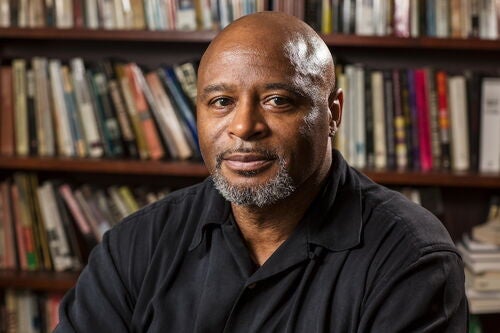If the Rio Olympics had a soundtrack? Samba!
Millions will be sampling Brazilian culture for the first time, in person or through the media, during the Rio de Janeiro Olympics. Part of the soundtrack will be samba. Born in Rio, it was once the country’s undisputed national music and is still a prominent part of popular culture. History professor Marc Hertzman is the author of Making Samba and part of the Lemann Institute for Brazilian Studies at the University of Illinois. He spoke with News Bureau social sciences editor Craig Chamberlain about the music and its significance.
How do we know samba when we hear it? What makes it distinctive?
Samba has many variations, but is known for its 2/4 meter and syncopated rhythm. Samba de roda is a form that you might hear played at a bar or a backyard barbecue (example here). Another form is the earth-shaking, percussion-heavy version that animates Brazil’s world-famous Carnival (example here).
How has this music been central to Brazil’s heritage and identity?
It would be hard to overemphasize samba’s importance. Foreigners often use “samba” almost interchangeably with “Brazil.” Observers frequently call the national soccer team “samba boys,” and a few years ago the BBC used the word to emphasize Brazil’s then-rising financial star with the headline “Brazil’s economy marching to samba beat.”

On a deeper level, the music has served as a unique repository for collective memory. Samba has provided a means for uplift and inclusion, but also helped marginalize certain groups and individuals and perpetuated damaging myths. Many of the men and women I met and read about while writing my book understand samba as a means for financial, cultural and/or professional advancement. The experiences of others, by contrast, show how the celebration of a purportedly black musical form can also serve to hide racism and determine who does and does not count as acceptably Brazilian.
The most pernicious myth is the long-standing idea that there is no racism in Brazil, an idea long ago debunked and yet still often hailed as fact. Samba’s black and mixed-race origins make it both a misleading example of racial unity and a means by which musicians confront that very myth.
Are there any parallels with the U.S., given both countries’ multiracial histories?
This is a tricky question that I address in courses on the history of black music, but the short answer is “yes and no.” The contradictory forces that I just mentioned certainly resonate with the history of jazz, for example, but I wouldn’t overdraw the comparison.
Brazilians’ collective mental musical library is truly remarkable. It never ceases to amaze me how many songs Brazilians know by heart and sing along to at bars or parties. In that sense, samba is similar to rock ‘n’ roll in the U.S., except that the repertoire dates back to the 1910s or 1920s and is celebrated and expanded with new songs every year at Carnival, an event of international dimension that is also a national holiday.
What circumstances in Rio fostered the creation of samba there?
I don’t subscribe to the idea that samba’s rise was somehow predestined, but there are several factors of undeniable importance. First, the Brazilian record industry was born in 1902 in Rio, which was then the national capital. Second, Rio was home to a unique collection of black communities, sometimes-interracial musical circles, and a web of journalists, entrepreneurs and artists, who all propelled the music forward. Third, like any musical form, this one owes its rise to a collection of supremely talented artists capable of blasting through artistic convention and also savvy enough to deliver their product to consumers.
Where can you hear samba today, especially in Rio?
Lapa, an old Bohemian neighborhood now brimming with great bars and restaurants, is great for live music of all kinds, including the revitalized, older samba de roda form. The city’s samba schools, a unique mix of community association, club and musical “team,” also host visitors and play the ear-splitting percussive music heard at Carnival. Nationally, samba regularly finds its way into unexpected places within Brazil’s diverse music scene, such as in the work of popular hip-hop artist Marcelo D2.








